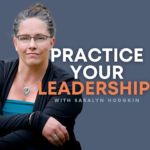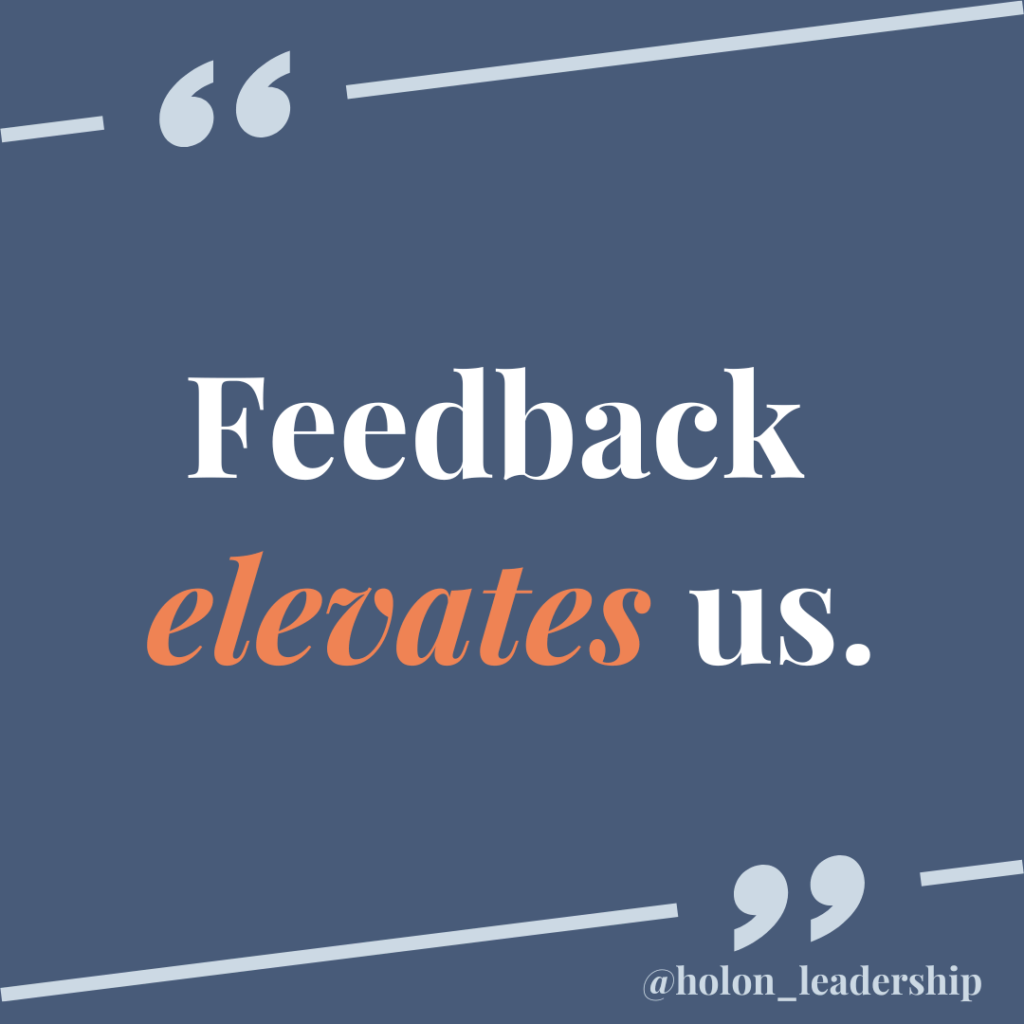Hi everybody. I wanted to come in here and share another perspective around feedback. Part of it here for me is knowing how to handle feedback and give and receive feedback and so on. Definitely. But there’s also this part around knowing how to get grounded and see in your body what is going on. So what do I mean by this?
I received some feedback from a colleague of mine. and some of it was really great and some of it was hard to hear, and so then a couple days later, I’m invited to facilitate a session for something completely different.
And when I go into that session I wanna make sure that what I’m carrying from that feedback is what is useful and not what drains me. So what I did is I sat down with a piece of paper and I said, Okay, how am I feeling about receiving that feedback? What’s coming up for me? And I wrote down, gosh, like there’s just so much noise in my head from that feedback.
I feel like I’ve been judged. I feel like, that the other person is not confident in me. That I’m not confident in myself. Ugh. Right. Like just, ugh. So the emotions, I, I took out the emotion wheel and I started circling things around.Just like aversion. I feel aversion, I feel threatened, I feel jealous and anger and attacked, and I just started circling a bunch of words, and then after putting that on a piece of paper, like just getting it all out, not sharing it with anybody, I just put it to the side and then I sat down, closed my eyes, and using my breath just did a simple body scan. A lot of us know what those are, right?
Literally, maybe it was two minutes. You could set a timer, I’m sure, but closing my eyes, sitting in a comfortable position, breathing, centering in, and just breathing as I’m paying attention to my feet, breathing as I’m paying attention to coming up my legs, coming up to my hips, coming into my belly.
Releasing tension as I go through and I went through all the way up to the top of my head and above my head. It took about two minutes breathing and grounded. And I brought that piece of paper back out and I started to write down my perspective now of that feedback and it even surprised me. I wrote down things like, that person actually has a, a form of love for me to share with me.
They shared some of that feedback because it elevates us. It, it bridges us to try and better work effectively in, in some of the things that we have in front of us. It got to a place where some of the words I started writing down was just, her words are important period. Right? Thank you for sharing that.
Now, the emotions, when I got the emotion wheel back out, right, calm, clear, grounded, whatever, whatever came up, it just helped me feel more, more resourced to be able to, whew, go out in the world to be able to go into this session that has nothing to do with this other person and facilitate it a little bit more clear and grounded.
Why? Because I gained perspective. I gained perspective. And so we can talk about the ways and the practices and the tools to give and receive feedback, but part of the conversation is what do you do with the emotions of that feedback afterwards? How do you hold that and how do you, how do you gain perspective for yourself, for your emotions?
What are some of the tools around that? And for me, a body scan worked really well not to just like, Oh, I’m gonna deal with this now, but to say, I wanna prepare to go into this other space. I want to use a body scan, or somehow get clear and grounded to just gain some perspective because the noise from the feedback is following me around into these other places.
So taking a breath. Getting grounded, it helps me gain that perspective that I need. Taking that moment allows a place for me to claim my power in the choice that resting and breath and pause is part of the work. It’s part of the work. And that when I feel noise and I enable a practice, like a body scan, to then get some perspective, feel more grounded, clear resource, it means I’m going against the grain of what I hear all the time around productivity.
And you have to do this, and you have to do that and do more and do better. And it’s like, whoa, whoa, whoa. In order for me to do better to show up with resilience and feeling resourceful to hold these other people in this facilitation means that I am making a choice that I don’t see everywhere, right? That isn’t normed and applauded and valued, but I still make the choice to take the moment.
To find in whatever practice works for me, in this moment it was a body scan, to find the way that works for me to find that grounded, clear, calm person that I am, and it is empowering in a place of wielding my power to say, this is important to me. This is important to how I want to show up aligned in my leadership, in my agency, in my responsibilities.
So we’re gonna receive feedback. Some of it solicited, some of it not, some of it triggering, some of it not. If you find it’s following you find your practice, and maybe it’s a body scan, to be able to get some perspective because the noise that sticks in your head, like for me, being judged and attacked and ooh, like that kind of emotion, all that noise, it doesn’t help me moving forward.
And it sure doesn’t help me to make a choice of what parts of those feedback I bring into myself and what parts I just allow to be like sand and drop in the ocean and just let that go. These are the choices we make about how we spend our time, how we spend our energy to come in and be resourced, resilient, grounded, calm, or whatever words you use to align your behaviours, your practices and choices with the leadership and agency that you have, and you want to demonstrate out in the world, not just for others but for yourself.



 Apple Podcasts
Apple Podcasts Spotify
Spotify Google Podcasts
Google Podcasts